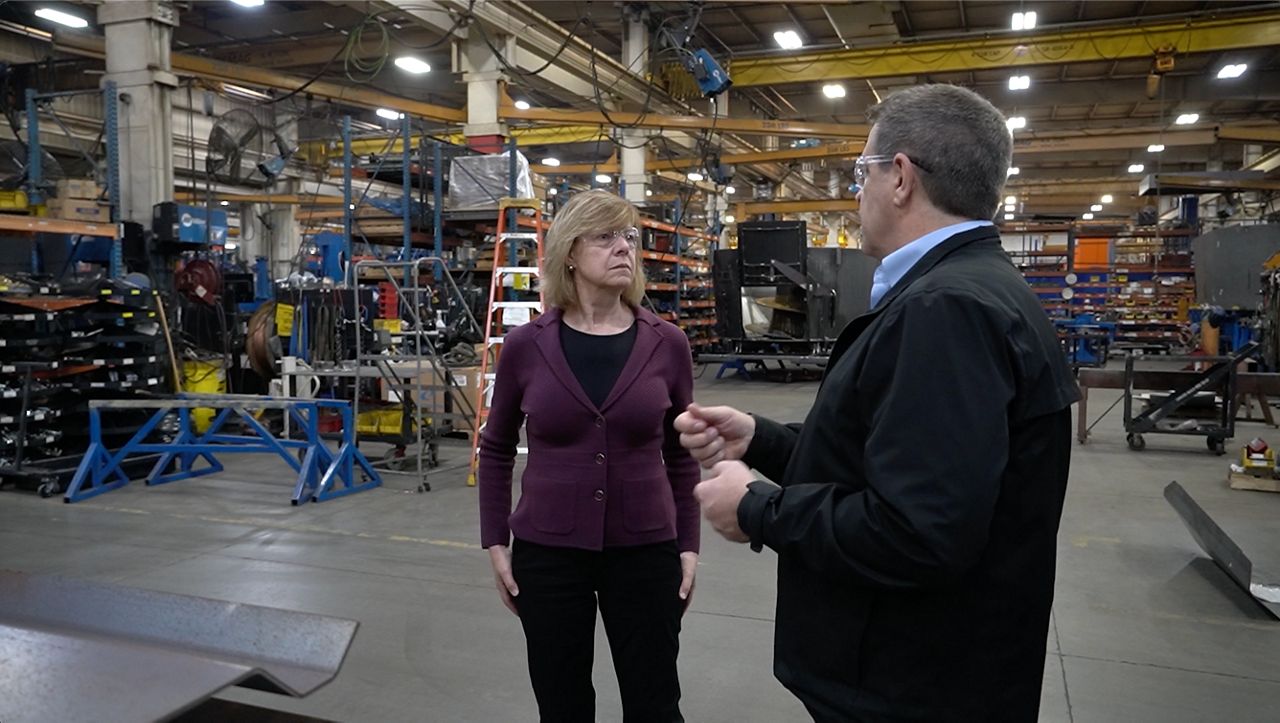WASHINGTON — After more than a year of wrangling on Capitol Hill, legislation to boost the domestic manufacture of computer chips and make the U.S. more competitive with China is near the finish line.
Negotiators from the House and Senate are convening to smooth out differences between bills each chamber has passed.
“I’m really looking forward to rolling up my sleeves and getting to work on this,” Sen. Tammy Baldwin, D-Wisconsin said.
A key member of the conference committee, Sen. Baldwin said the legislation would help an industry not normally associated with advanced technology: farming. She toured Kuhn North American, an agricultural machinery plant in Brodhead last week, seeing firsthand how a parts shortage is hurting farms.
“There are quite a few other components to the farm equipment that they build there that they’re seeing wait times of many months to obtain,” Sen. Baldwin said.
Components like microchips. A global semiconductor shortage is delaying the delivery of new tractors and other farm equipment.

“What you're seeing is nearly completed farm equipment that cannot leave the site, because it's still missing a component and maybe for many, many months to come,” Sen. Baldwin said. “It's unacceptable, and it's going to have real consequences.”
Both the Senate’s U.S. Innovation and Competition Act (USICA) and the House’s COMPETES Act would allocate $52 billon to ramp up domestic chip production. That investment is backed by the Association of Equipment Manufacturers (AEM). It sent a letter last month to the committee, asking the panel to prioritize provisions that would also spotlight workforce development, improve transparency and administration of trade programs.
“On behalf of the equipment manufacturing industry, AEM looks forward to constructively engaging in the consideration of this important legislation and supporting efforts by the U.S. Senate and U.S. House to expeditiously produce a durable, bipartisan law that helps all manufacturers meet the challenges of the global economy,” Kip Eideberg, the AEM Senior Vice President of Government and Industry Relations wrote.
Sen. Baldwin said she hopes a deal can be reached by June.
“We're a state that makes things and it's why I have introduced my Supply Chain Resiliency Act,” Sen. Baldwin said. “Many components of which are in the Innovation and Competition Act. And when I serve on the conference committee, I'm going to be working very specifically on trying to strengthen those strengthened our supply chains across the board."
